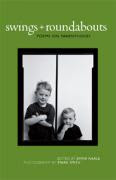Preamble
There is probably no author in the world I am less well qualified to review objectively than Mark Pirie. Mark and I have known each other since the summer of 1996-1997. At that stage, I was working as the Course Materials Editor for the Department of Library and Information Studies at Victoria University, and Mark came to help me out with that job over the summer. At that stage, I was a budding short story writer with a few publications under my belt who wrote the occasional poem, while Mark was a published poet and one of the members of the collective that put together JAAM magazine.
I submitted some poems to JAAM, and had one published in JAAM 6 in February 1997 – I think this was due to its literary merits, rather than to Marks’ employment situation! After that, I was published several more times in JAAM, and subsequently, Mark’s publishing company HeadworX has published my two poetry collections, Boat People and All Blacks’ Kitchen Gardens as part of its extensive and excellent poetry list. My first short story collection, Extreme Weather Events, was published as part of HeadworX’s comparatively short-lived Pocket Fiction Series.
Most recently, we’ve collaborated on editing the recently-released anthology Voyagers: Science Fiction Poetry from New Zealand.
So, when Mark asked if I would like a review copy of Tom, I was hesitant – not because I thought I wouldn’t enjoy it, but because I wondered whether I could maintain enough distance to write a worthwhile review.
Nevertheless, I enjoyed it, and I’ve reviewed it. So, caveats and forewarnings aside, here is my review!
Review
Tom is a verse novel, set in Wellington during the mid-1990s. “Tom” is Tom Grant, a student and budding writer whom Mark Pirie identifies, and who self-identifies, as a member of “Generation X”. The verse novel proceeds by a mixture of Tom’s poems, prose poems, and the occasional mock essay. Only a couple of the 70 entries are long, and the book as a whole is an easy, enjoyable read.

Mark Pirie famously identified himself as a member of Generation X, and crystallised Generation X writing in New Zealand, when he edited the Gen X anthology New Zealand Writing: The NeXt Wave (still controversial, and still worth checking out) in 1998. Now, having gone through the whole GenX-student-in-Wellington experience, he is aware of what it has all added up to. His character Tom Grant, living through similar experiences as the book progresses, does not have this awareness. This distance lends the delicious ironies that are especially prevalent in the first 2/3 of the book.
These sections, in particular, are often very funny, as Tom tries and generally fails at love, life and literature. Tom writes an essay on Gerald Manley Hopkins in which draws more comparisons than might be thought humanly possible between Hopkins’ poetry and mid-90s music, most memorably that of Guns’n’Roses; he itemises his wardrobe; he tries his hand at a protest poem. There’s a knowing wink to all this which frequently had me chuckling.
Tom grows up a bit towards the end of the book. He finally gets it on with Kate, the object of his desire; in a memorable “answer poem”, she dissects Tom’s true motives in eight pitiless lines. At last, he has a poem accepted for publication (by an older poet called Jimmy O’Toole, who … well, let’s just say Jimmy reminds me of someone whose name has a similar form). He tries his hand at a long poem, a version of Ginsberg’s “Howl” which doesn’t outshine the original.
The final poem in the book is Tom’s contributor’s note to accompany his first published poem. It ends with the line “but still it’s early days …”. It would be good to see another volume of Tom’s adventures, but the humour and freshness of Tom’s early encounters with the big wide world will be hard to beat.
You should be able to find a copy of Tom in independent bookshops. There was a handsome pile of them in Unity Books, Wellington, the last time I visited.


